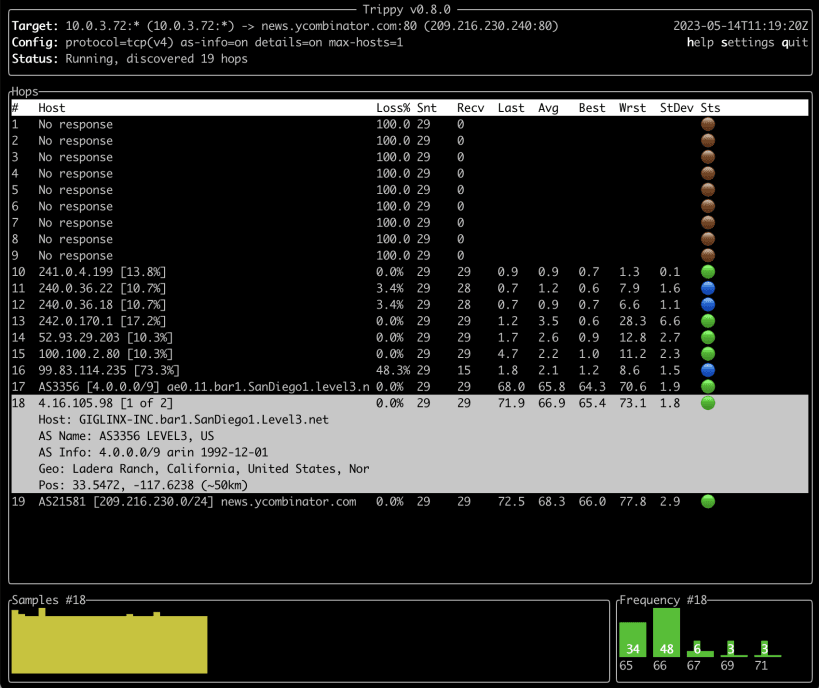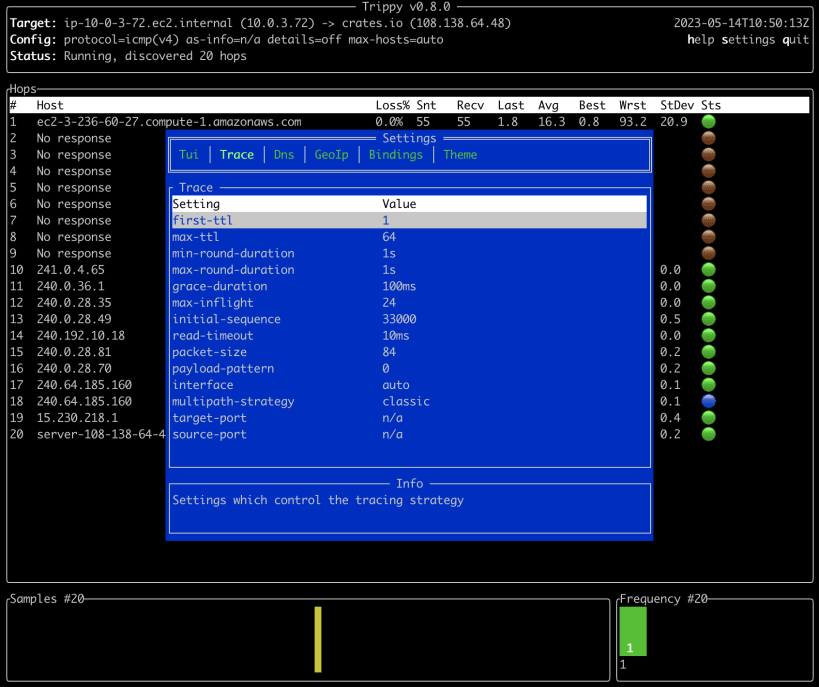





Trippy combines the functionality of traceroute and ping and is designed to assist with the diagnosis of network issues.
Features:
ICMP, UDP & TCPIPv4 & IPv6TCP & UDP)TOS (aka DSCP + ECN)classic, paris and dublin)8.8.8.8 or Cloudflare 1.1.1.1) or custom resolvermmdb filesjson, csv & tabular (pretty-printed and markdown)flows reportdot chartsThis package auto-connects to the following snap interfaces:
network: to allow general outgoing network accessnetwork-bind: to allow binding to local portsnetwork-observe: to allow enabling CAP_NET_RAW for using raw socketshome: read: all: to allow reading configuration from the user home directoryYou are about to open
Do you wish to proceed?
Thank you for your report. Information you provided will help us investigate further.
There was an error while sending your report. Please try again later.
Snaps are applications packaged with all their dependencies to run on all popular Linux distributions from a single build. They update automatically and roll back gracefully.
Snaps are discoverable and installable from the Snap Store, an app store with an audience of millions.

If you’re running Ubuntu 16.04 LTS (Xenial Xerus) or later, including Ubuntu 18.04 LTS (Bionic Beaver) and Ubuntu 20.04 LTS (Focal Fossa), you don’t need to do anything. Snap is already installed and ready to go.
For versions of Ubuntu between 14.04 LTS (Trusty Tahr) and 15.10 (Wily Werewolf), as well as Ubuntu flavours that don’t include snap by default, snap can be installed from the Ubuntu Software Centre by searching for snapd.
Alternatively, snapd can be installed from the command line:
sudo apt update
sudo apt install snapd
Either log out and back in again, or restart your system, to ensure snap’s paths are updated correctly.
To install trippy, simply use the following command:
sudo snap install trippy
Browse and find snaps from the convenience of your desktop using the snap store snap.

Interested to find out more about snaps? Want to publish your own application? Visit snapcraft.io now.